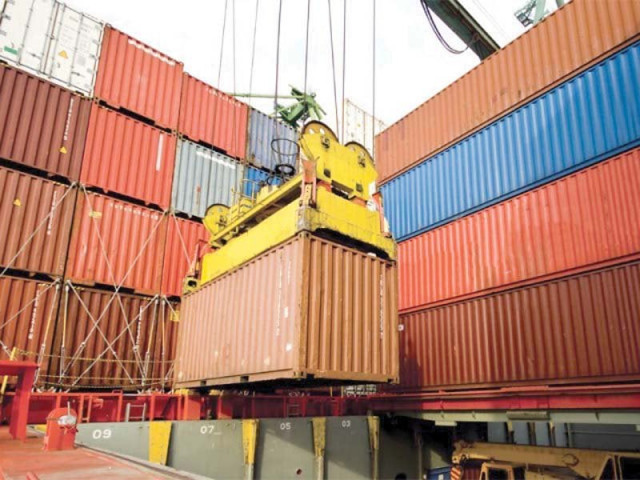Government urged to focus on exports
Offer incentives and implement structural reforms, says official

Under the tax mechanism, exporters have to apply online to avail the exemption through the Iris - the system FBR uses for electronic form submissions and tax-related matters.
PHOTO:REUTERS
Dialogue 'best way' to resolve conflict between Pakistan, India: PM Imran
He suggested the government to offer incentives and urge the exporters to export whatever they produce instead of supplying it to the domestic market. Jawad was of the view that the exporters should focus on producing those items of which they have proper knowledge and infrastructure rather than producing different items. He said that structural reforms in Pakistan face two challenges; lukewarm commitments from the policymakers and resistance from vested interests.
The new government should initiate work on structural reforms as soon as it assumes power. These should focus on increasing the share of value-added products such as pharmaceutical, information technology-based and engineering ones in the export mix.
Currently, the country lacks product and market diversification. As a result, Pakistan accesses low-end markets and fetches low prices. The bigger challenge for the new government will be to attract investments in export-oriented industries. Currently, domestic investment is concentrated in real estate, the stock market and power generation, he added.
Officials in the commerce ministry believe that the new government will have to devise a comprehensive plan, which would include a short-term policy for consolidating gains, a mid-term strategy to improve competitiveness and a long-term plan for launching structural reforms.
It was also observed that Pakistan’s export basket is heavily reliant on textiles. In 2017-18, the share of textiles was 58.3%, followed by 20.7% of food commodities. Other factors that have slowed the growth of exports include a lack of funds for research and development, low labour productivity, rent-seeking and inconsistent economic policies, he added.
PBC urges Asad Umar to focus on ‘Make in Pakistan’
Jawad urged the adviser on commerce and textile and the prime minister to promote non-traditional products for the export market such as horticulture sector and make a viable Pakistan Horticulture Development and Export Company (PHDEC).
Published in The Express Tribune, August 22nd, 2018.
Like Business on Facebook, follow @TribuneBiz on Twitter to stay informed and join in the conversation.




1733130350-0/Untitled-design-(76)1733130350-0-208x130.webp)













COMMENTS
Comments are moderated and generally will be posted if they are on-topic and not abusive.
For more information, please see our Comments FAQ